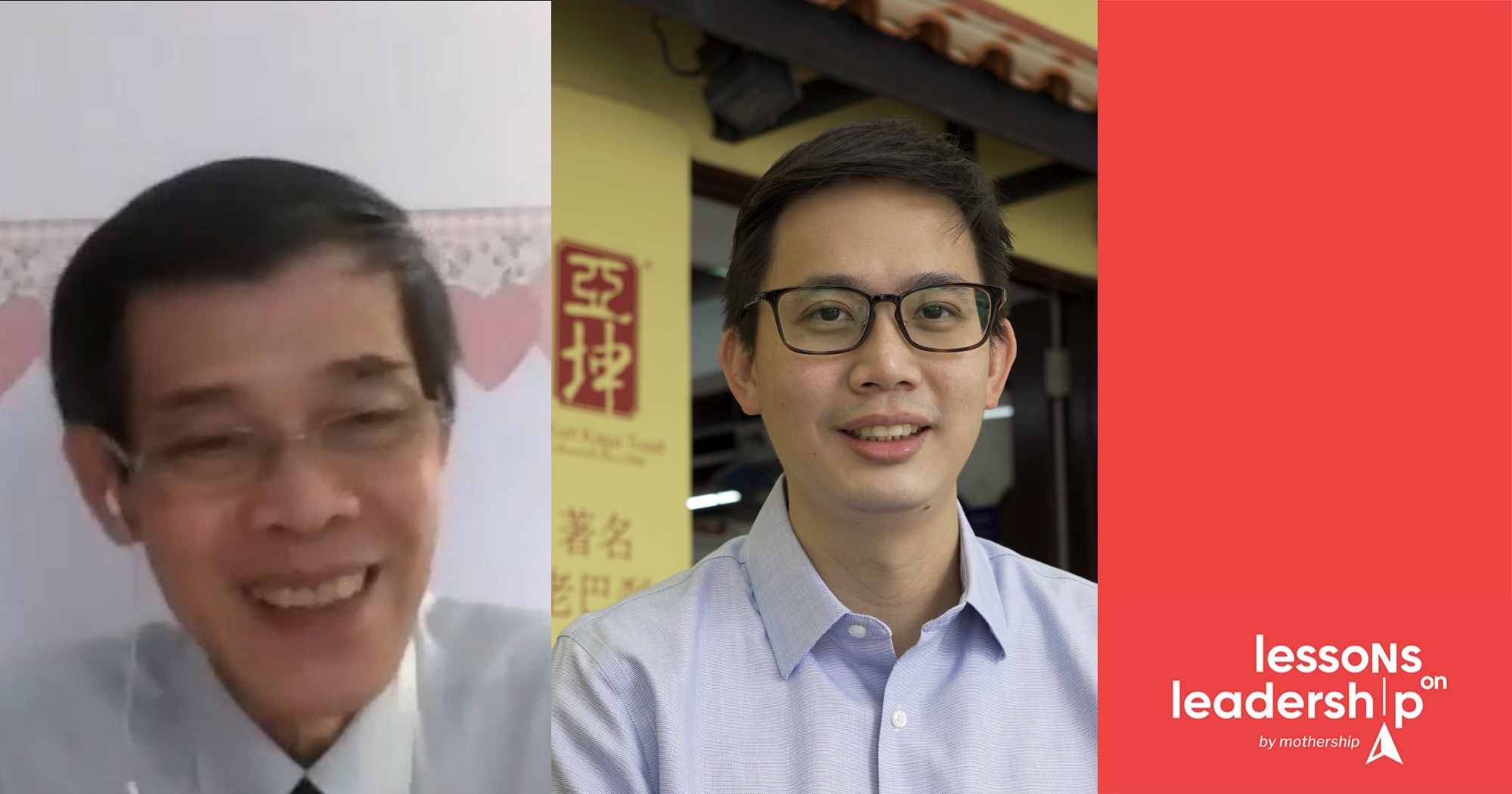Here's a little known fact: The CEO of beloved Singaporean heritage brand Ya Kun is neither Singaporean nor related to the family of Ya Kun's founder, Loi Ah Koon.
The person running the show for about five years now is Toshiya Tanaka, whom Loi's grandson Jesher Loi is quick to qualify is "more Singaporean than he is Japanese".
Tanaka-san — as he is known in the company — fits well into the Ya Kun culture, says Jesher.
He's patient, collaborative, has a wealth of experience (20 years in the F&B industry, in fact), and brings a decidedly Japanese quality to his work: A keen eye for detail.
"My dad is very careful to hire people he feels can integrate well and improve the culture."
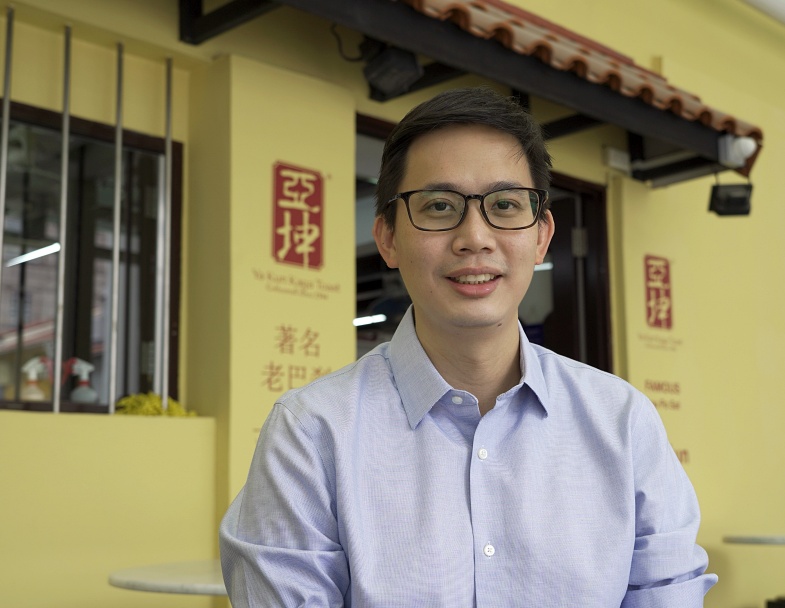 Jesher Loi, the grandson of Ya Kun's founder, Loi Ah Koon, serves as the chain's director of branding and market development today. Image by Bryan Cambo.
Jesher Loi, the grandson of Ya Kun's founder, Loi Ah Koon, serves as the chain's director of branding and market development today. Image by Bryan Cambo.
That's not to say the Loi family isn't in the picture. They still own Ya Kun, and are still very much involved the day-to-day running of the business.
Loi's son, 66-year-old Adrin Loi, is now Ya Kun's executive chairman, steering the kopi chain in terms of strategic direction.
36-year-old Jesher, Adrin's son, serves as director of branding and market development.
The Loi family has been engaging outsiders to run the business for years now.
"On our own, we are very limited in terms of our resources," says Adrin, in a video call with Mothership.
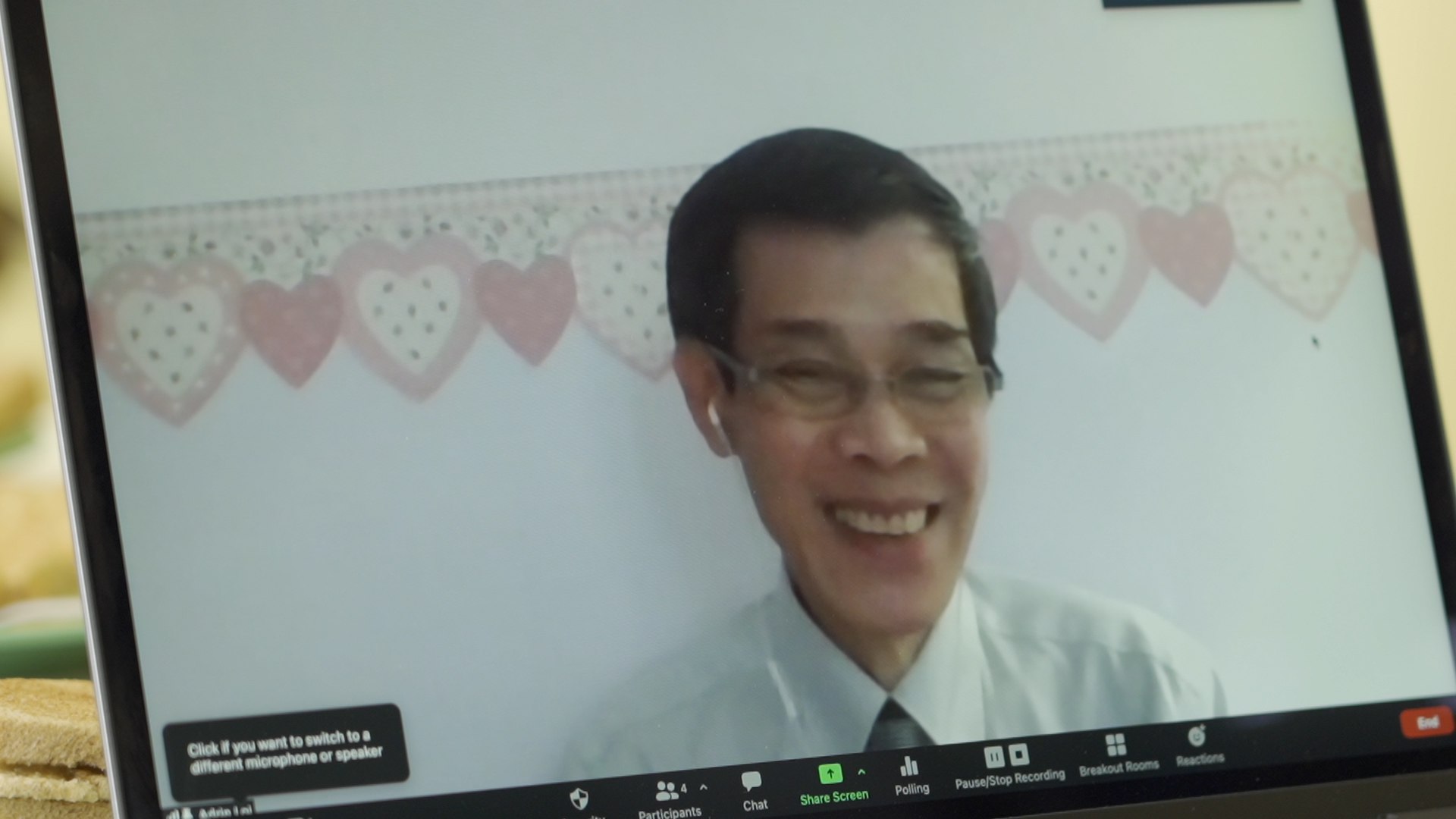
Also, he notes that family-run businesses can suffer blind spots because of their inherent bias, so there are benefits to having an outsider — someone with the right skills, proficiency, and talent — to run the business professionally.
This willingness to acknowledge personal shortcomings and open up the family business is just one of the many qualities that enabled Ya Kun to evolve from a one-man coffee stall to a global franchise spanning 14 countries.
Breakfast of the masses
First opened in 1936 as a coffee stall at Telok Ayer Basin, the kopi and toast business was a significant milestone in Loi Ah Koon's life.
It was the culmination of a decade of menial hard work that the Hainan native undertook as a kopi assistant after he arrived in Singapore in 1926.
And while the clientele was varied — coolies, merchants, moneylenders, police inspectors and boat operators — the food at that tiny coffee stall was pretty standard: charcoal-grilled toast with kaya, eggs, and kopi.
There's a reason why this breakfast combination is still a favourite among locals today.
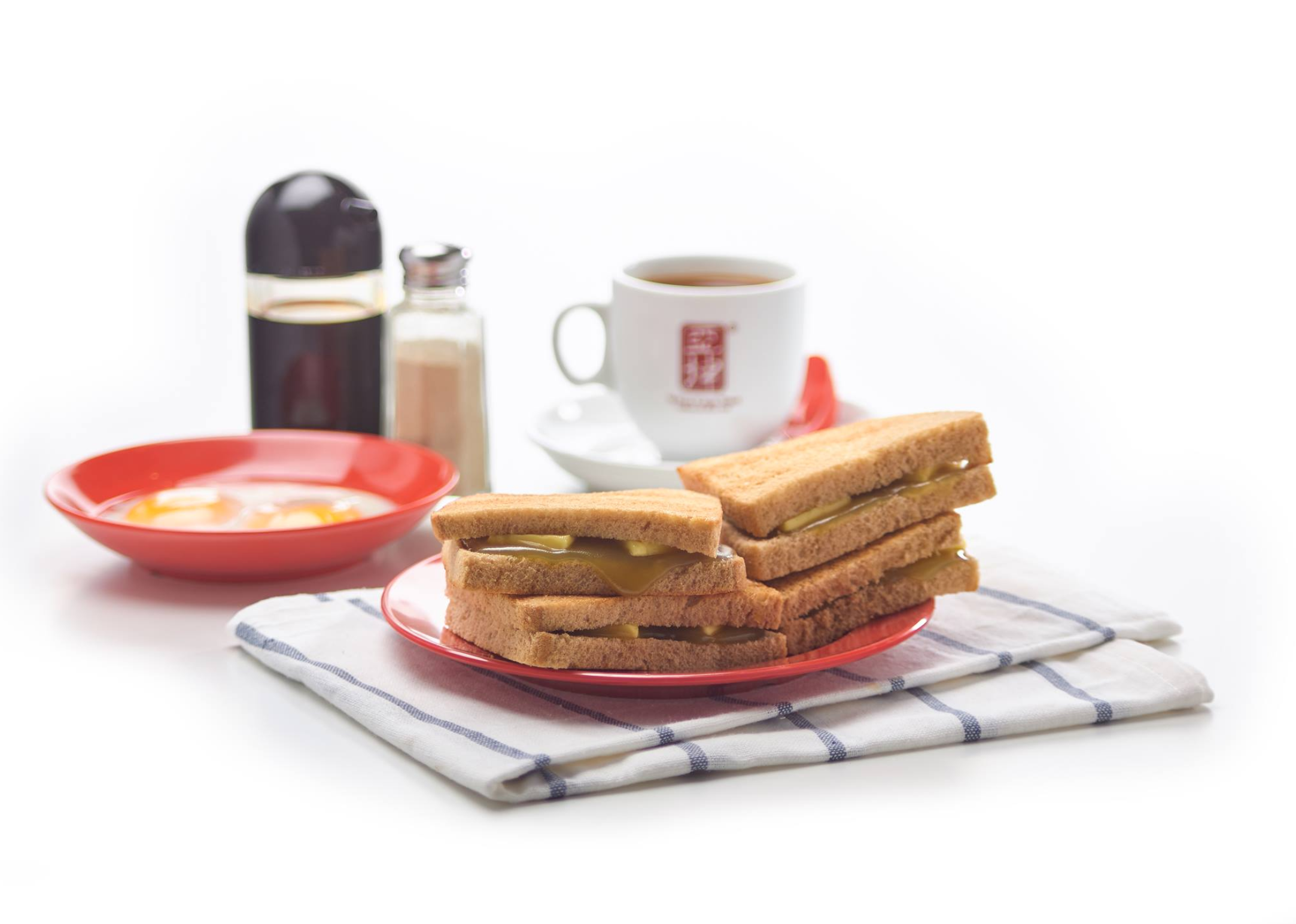 Still a breakfast favourite 85 years on. Via Ya Kun/Facebook.
Still a breakfast favourite 85 years on. Via Ya Kun/Facebook.
The kopi gives you a caffeine boost, the bread gives you energy, while the eggs provide protein. It's a complete meal that can keep you going until lunch, Adrin explains remarkably simply.
Adrin remembers helping out at the coffee stall as a young man, alongside his seven siblings, doing anything and everything — from collecting money to washing plates and cups to even delivering fresh kaya from home to the stall.
The work was taxing in many ways — Adrin remembers that his father would often sleep on his coffee stall's counter, just so that he would be able to wake up on time to catch the morning crowd.
"My dad and my mom, they really supported us in our education, supported until our marriages. This is something that we are very grateful to our parents for."
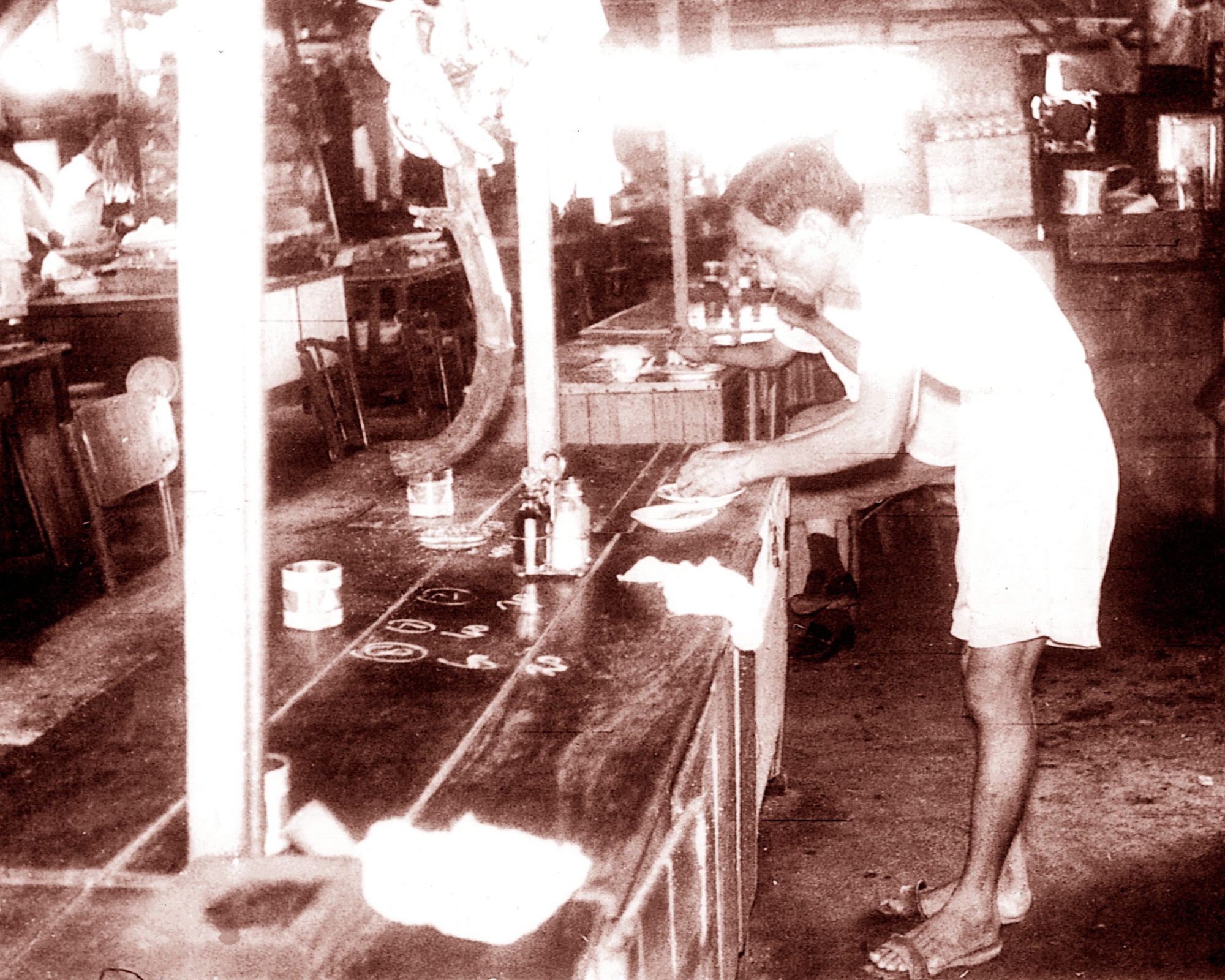 Loi Ah Koon would often sleep on his coffee stall's counter so that he could wake up early to catch the morning crowd. Image courtesy of Ya Kun.
Loi Ah Koon would often sleep on his coffee stall's counter so that he could wake up early to catch the morning crowd. Image courtesy of Ya Kun.
Pulled back from the brink of shutting down
In 1972, the coffee stall moved from the Telok Ayer Basin to the Telok Ayer Market (present day Lau Pa Sat) where it was renamed Ya Kun Coffeestall. In 1984, Ya Kun moved across the street to the Telok Ayer Transit Market and 14 years later, it moved to Far East Square, thanks to a serendipitous stroke of good luck.
The year was 1998. The land the Telok Ayer Transit Market stood on was due for redevelopment.
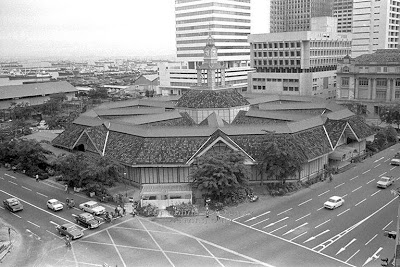 Lau Pa Sat in 1973. Via NAS.
Lau Pa Sat in 1973. Via NAS.
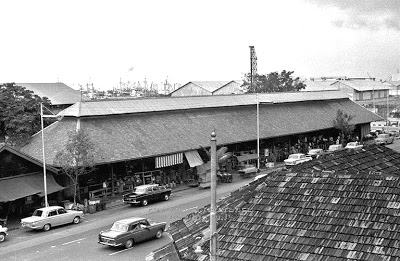 Telok Ayer Transit Market in 1986. Via NAS.
Telok Ayer Transit Market in 1986. Via NAS.
The government gave hawkers at the market two options: Relocate to another food centre or close down your stall and be compensated S$16,000.
S$16,000 was a lot of money back then, Adrin reminds us. The family was seriously considering the offer to shut Ya Kun down because Loi and his wife were getting on in age.
Right at that moment, though, a longtime customer, one Chia Boon Pin from Far East Organization approached the family with an offer: Come sell your kopi and kaya toast at our soon-to-be-opened Far East Square at China Street.
The family was not persuaded.
Aside from the huge jump in rent (rental fees at Far East Square was about 30 times higher than that at the market), the family was also afraid that it would not be able to draw a crowd. A market naturally draws people who are looking for food but a shop in a mall is a different story.
However, Chia was persistent. He offered the Loi family a shop at Far East Square completely free-of-charge, confident that the coffee stall would thrive.
The family went ahead with the offer and poured S$10,000 into the shop to renovate it, filled it with secondhand furniture, and flooded the mall with posters announcing Ya Kun's opening.
Chia was proven right on Ya Kun's opening day at the mall.
"When we opened the shop — before we opened the shutters — you know what happened?" Adrin says with a grin.
"Long queue outside, seriously! Then once we opened, people were rushing! People wanted to be served first because after eating they wanted to get off to work."
How successful was Ya Kun at Far East Square? The business broke even just two weeks after opening.
Right place, right time, and a whole lot of passion
The new start at Far East Square was also the opportunity for Adrin and his brother Algie to take over the business from Loi senior.
Under Adrin's leadership, Ya Kun expanded, first by opening a second outlet at Tanjong Pagar, and then selling franchises from the start of the new millennium.
Today, there are over 70 Ya Kun outlets in Singapore, and 70 outlets overseas. What originally started out as a means to support the Loi family has boomed into a household name synonymous with Singapore kopi culture.
What's behind this family heritage brand's success?
"I would say actually, that we are very blessed because the Ya Kun story is no different from any coffee shop," says Jesher.
It was simply the right time, the right place, and the right opportunities to branch out.
For instance, he points out that today, the concept of "food streets" in malls — basements filled with a variety of F&B options — is prevalent today but back in the early 2000s, it was still a novelty and the trend coincided with Ya Kun's timely decision to sell franchises.
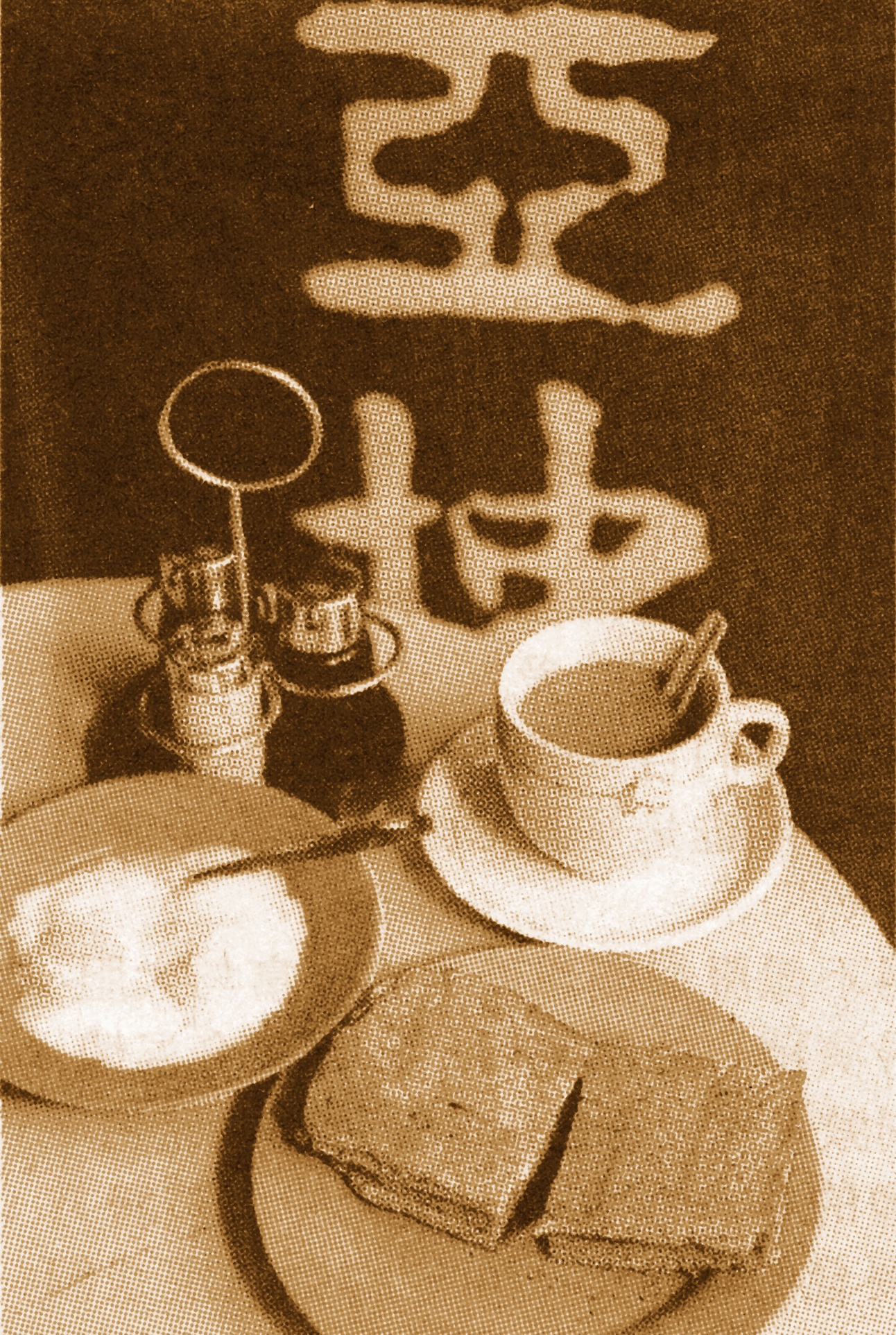 Kaya toast, kopi, and eggs remain a breakfast favourite among Singaporeans today. Image courtesy of Ya Kun.
Kaya toast, kopi, and eggs remain a breakfast favourite among Singaporeans today. Image courtesy of Ya Kun.
Working at the frontlines
Luck aside, there are of course values that the kopi chain abides by.
For one, all employees who join Ya Kun have to spend two weeks working at a Ya Kun outlet to gain perspective, Jesher shares:
"Once you experience the heat and taking a bus at 11pm to go home, or having to wake up at 5:30am, it really changes your perspective, your marketing campaigns, your ideas, your views. You need to know where the action is on the front line. Until you know the front line you can't make clear decisions in the office."
He would know. The 36-year-old jumped into the family business after returning from California where he studied music.
Working at the kopi station was the hardest, he says. It wasn't mastering the kopi recipes per se that was difficult, but having the various permutations of kopi ready at his fingertips in a high-stress environment.
"That's why [the staff in the kitchen] really have kung fu because it's just so familiar, they can do it without thinking."
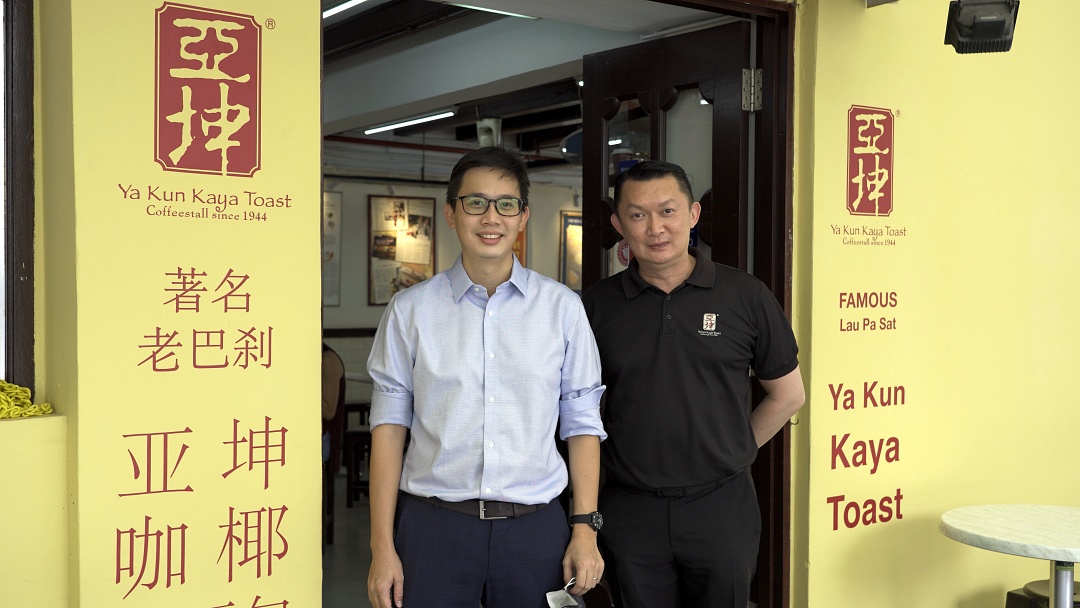 Jesher Loi (L) and his cousin Asher Loi (R) are among the remaining 3rd generation of Lois working in Ya Kun today. Image by Bryan Cambo.
Jesher Loi (L) and his cousin Asher Loi (R) are among the remaining 3rd generation of Lois working in Ya Kun today. Image by Bryan Cambo.
What Jesher can tell us from his own experience on the frontline (of Ya Kun's shops) is it takes about a week to learn how to make kaya toast, and as long as a few months to master kopi. His cousin Asher, on the other hand, tells us he took one whole year to learn how to brew a good cup of kopi, suffering burns and cuts on his hands in the process.
Asher joined the company in 2000, rising through the ranks at the Far East Square outlet to become a store manager. Today, he oversees seven outlets.
Working at the store is incredibly rewarding, says Asher, even though he doesn't brew kopi or toast bread as often now. He loves seeing satisfied customers at the outlets, and enjoys maintaining relationships with Ya Kun regulars.
Both Asher and Jesher are quite aware, however, that young folks today would not find working with a kopi and toast chain very sexy. The environment is hot and noisy, and according to Jesher, the profit margins are slim.
A career with a place like Ya Kun is one that would be borne out of passion and heart — something that all three Lois stressed throughout our interview — and so all recognise the significant difficulty in attracting new blood to join the company.
Even within the Loi family, there's no telling if the fourth generation will be willing to pick up the mantle.
"My kids are so young, it's hard to [determine] what their passions will be. I don't even know what this business will be like down the road," says Jesher.
"We just want to preserve heritage"
The biggest value that Ya Kun abides by, one that has sustained it for 85 years, is probably its insistence on staying true to its heritage: kopi, kaya toast, and eggs.
There are seasonal menu items that pop up now and then — like its range of Toastwiches (go for the Rendang Chicken one) but its core products aren't likely to change anytime soon because the chain prides itself on "giving every generation a taste of what heritage is like," says Jesher.
"At the end of the day, we're not meant to be trendy. We don't build ourselves to be edgy, trendy, or keeping all the trends. We just want to preserve heritage."
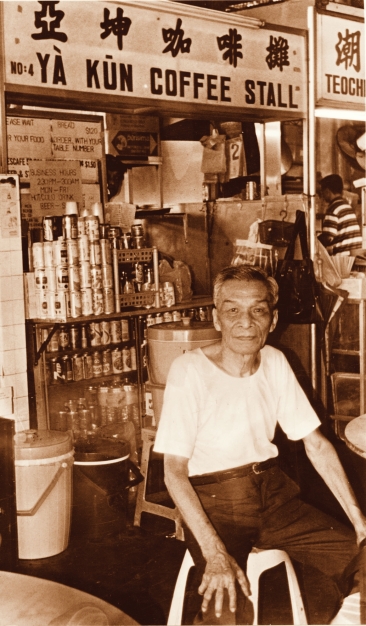 Ya Kun still does many things, like brewing kopi and toasting bread, the way its founder Loi Ah Koon used to do them. Image courtesy of Ya Kun.
Ya Kun still does many things, like brewing kopi and toasting bread, the way its founder Loi Ah Koon used to do them. Image courtesy of Ya Kun.
This is why Ya Kun firmly eschews automation in the production of its kopi, kaya toast, and eggs. Toasting the bread, roasting the coffee beans, and brewing kopi are all processes still done by hand because people like that human element, says Jesher.
For older folks, there is a sense of nostalgia (a.k.a the good old days of 10¢ kopi) and for younger customers, Jesher hopes that warm sense of home evoked by kopi and kaya will help them establish their own new memories with the chain.
Just think about the first time you had Ya Kun or the people you were with the last time you visited a Ya Kun outlet, he says:
"I realised that because we are so brick and mortar, we're actually integrating people's memories into the shop... I feel like that's where I find my fulfilment — we create this space for you to fill with your memories."
And in this way, the grandson of Loi Ah Koon sees it as his duty to steward his grandfather's labour of love, regardless of whatever role he is in.
Which is why he also doesn't rule out taking the reins of the company one day.
"I want to do the best that I can do, but I don't want to say that [being CEO] is my dream. But if one day I'm called to step up, I have to be prepared to do so."
Watch the Beyond The Glass Door video interview with Jesher and Adrin Loi on Facebook:
Lessons on Leadership is a new Mothership series about the inspiring stories of Singapore’s business leaders and entrepreneurs, as well as the lessons and values we can learn from their lived experiences.
Stay tuned for our next interview with Richard Eu, chairman of Eu Yan Sang International, out next month.
Top images by Bryan Cambo, courtesy of Ya Kun.
If you like what you read, follow us on Facebook, Instagram, Twitter and Telegram to get the latest updates.
